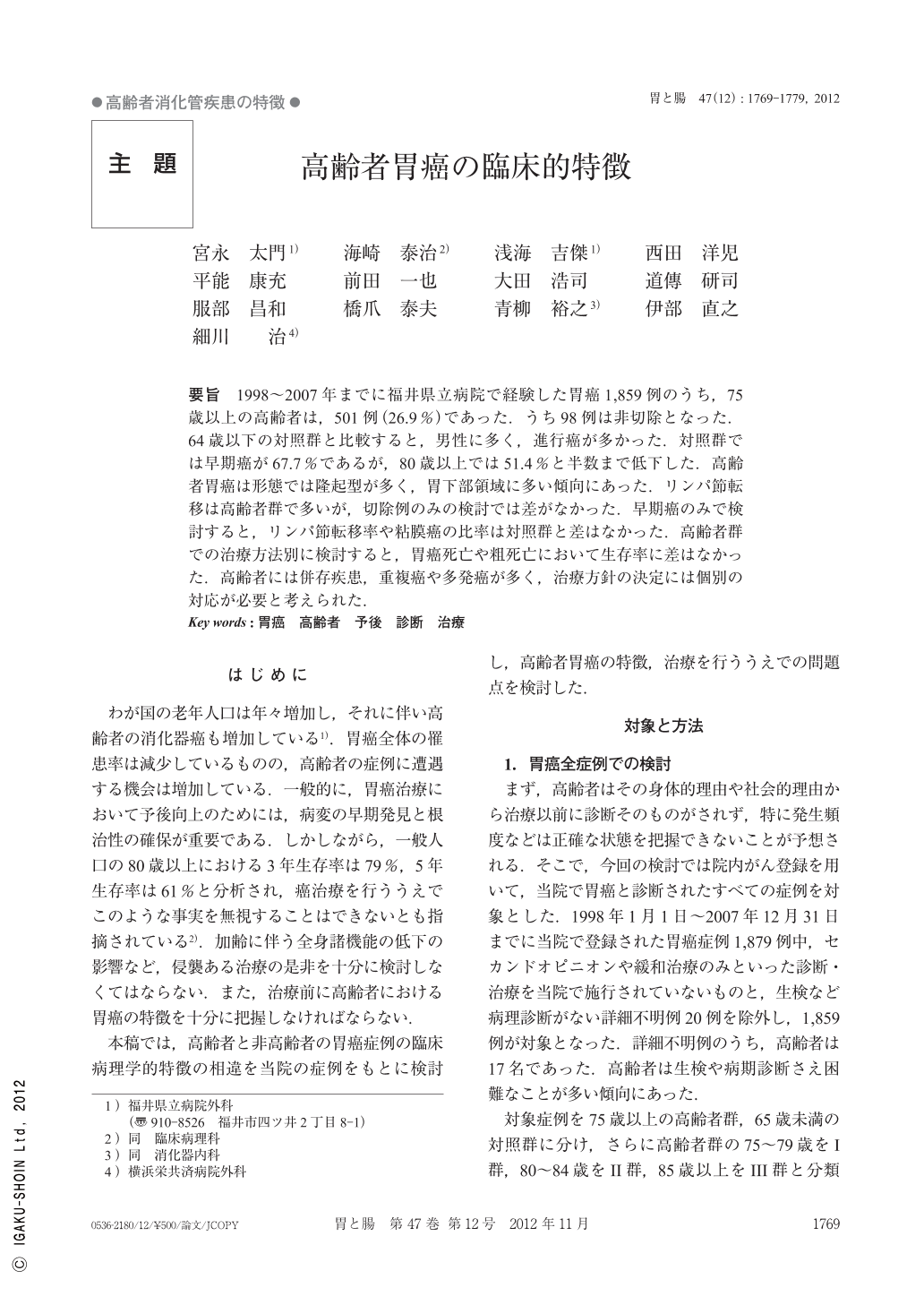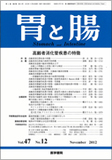Japanese
English
- 有料閲覧
- Abstract 文献概要
- 1ページ目 Look Inside
- 参考文献 Reference
要旨 1998~2007年までに福井県立病院で経験した胃癌1,859例のうち,75歳以上の高齢者は,501例(26.9%)であった.うち98例は非切除となった.64歳以下の対照群と比較すると,男性に多く,進行癌が多かった.対照群では早期癌が67.7%であるが,80歳以上では51.4%と半数まで低下した.高齢者胃癌は形態では隆起型が多く,胃下部領域に多い傾向にあった.リンパ節転移は高齢者群で多いが,切除例のみの検討では差がなかった.早期癌のみで検討すると,リンパ節転移率や粘膜癌の比率は対照群と差はなかった.高齢者群での治療方法別に検討すると,胃癌死亡や粗死亡において生存率に差はなかった.高齢者には併存疾患,重複癌や多発癌が多く,治療方針の決定には個別の対応が必要と考えられた.
Among 1,859 patients who were admitted for gastric cancer to Fukui Prefectural Hospital between 1998 and 2007, 501(26.9%)were aged 75years or more. Of these elderly patients, 98 did not undergo resection. Compared with a control group of patients aged 64years or less, the male elderly patients had a higher incidence of gastric cancer and a greater number from this group presented with advanced cancer : 67.7% of the control group and 51.2% of the patients aged 80 or more had early-stage cancer, with the rate decreasing to almost half of the subjects in this group. Protruding-type gastric cancer was more common in elderly patients and was more frequently observed in the lower area of the stomach. The incidence of lymph node metastasis was higher in the elderly group than in the control group but did not differ among patients who had undergone resection. In the elderly group, we observed no relationship between the treatment method and gastric cancer-related mortality or crude mortality. Because elderly patients have higher frequencies of comorbidities, double primary malignancies, and multiple cancers than younger patients, it is necessary to assess individual responses in order to select optimal treatment strategies.

Copyright © 2012, Igaku-Shoin Ltd. All rights reserved.


